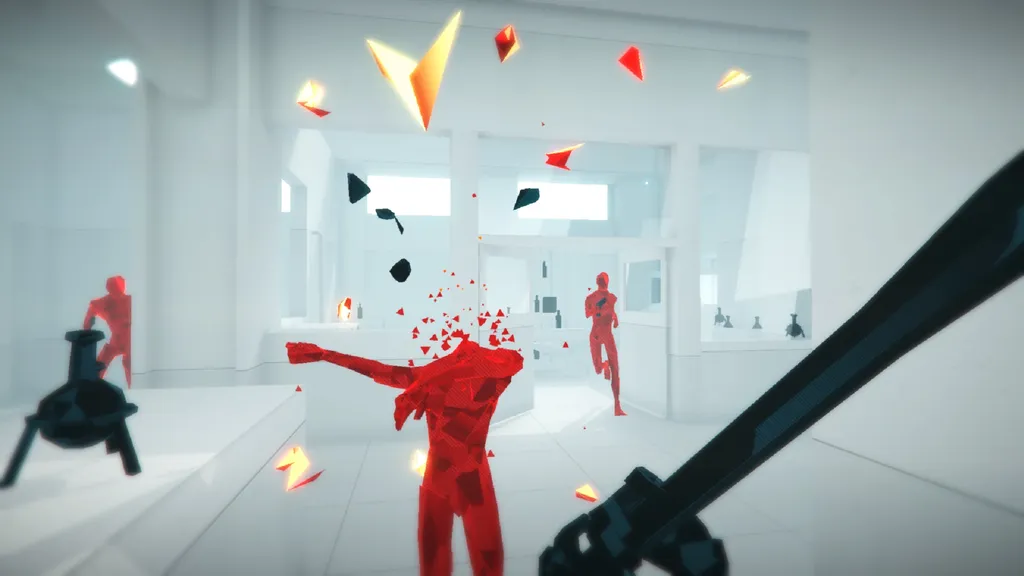The Game Developers Choice Awards are a staple event during GDC week, with last night’s ceremony recognizing the best games from 2017 like The Legend of Zelda: Breath of the Wild. The awards’ VR category returned for a second year, too, though the winner was more than a little familiar.
Superhot VR, just about everyone’s favorite VR first-person shooter (FPS), took home the award this year. However, this isn’t the first time the game has featured at the ceremony; it was nominated in the exact same category last year after releasing for the Oculus Rift in 2016 (when Job Simulator took home the prize).
So how can one game be nominated two years in a row, let alone win the second time around? The GDCA’s website states that any game released in the 2017 calender year is eligible for nomination. Superhot VR initially released in 2016, but ports to PlayStation VR, HTC Vive and Windows VR all released in 2017. The site notes that “Upgrades, expansions and mission packs are not eligible” for nomination, but doesn’t clarify if ports of older games can be considered too.
We’ve reached out to the GDC Awards to ask why the game was accepted two years in a row. A spokesperson gave us the following statement:
The Game Developers Choice Awards receives open nominations from our ICAN voting body, which consists of thousands of active & senior game industry professionals.
For our ‘Best AR/VR’ category in 2017, Superhot VR released 3 weeks before the end of the year, was only available on the Oculus VR store and required the Touch controllers – a setup that wasn’t available to the vast majority of our voters. (Particularly because the Oculus Touch was only available in December 2016, too.)
When we asked for nominations for the 2018 category, many of our voters who were not previously able to play the game now had access to the more widely distributed Steam (Vive) and PlayStation VR versions and nominated it. So the Awards organizers considered eligibility and access to this version of the game and permitted it to contend.
Awards that require certain hardware setups continue to be difficult to judge for our broad community of game developers who vote, so we’ll continue to refine our process.
Indeed, Superhot VR was only available to a very limited audience for a fraction of 2016 and the notion of supplying everyone on the ICAN voting body with thousands of dollars worth of equipment to try the game seems unnecessary.
Still, while no one is doubting Superhot’s excellence, there were plenty of new games deserving of this year’s prize too. Among this year’s nominees were UploadVR’s 2017 Game of the Year, Lone Echo, as well as Resident Evil 7, Star Trek: Bridge Crew and Skyrim VR. The GDC Awards even list a host of worthy ‘Honorable Mentions’ which this year included Farpoint, Rick and Morty: Virtual Rick-ality, Luna, Robo Recall, Gnog and Doom VFR.


























